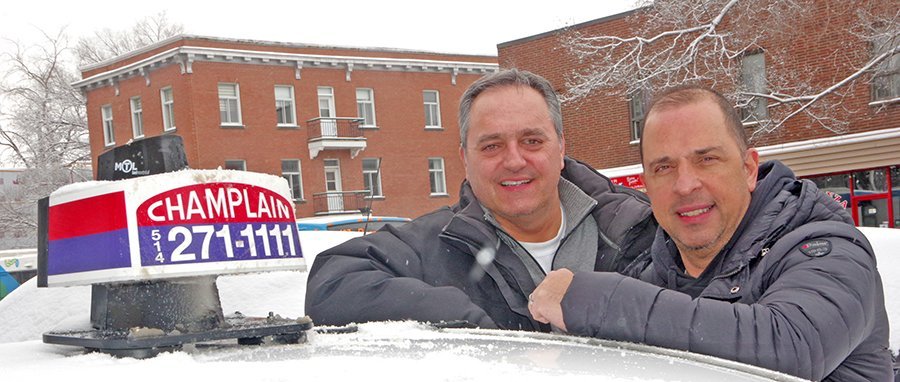
Martin C. Barry
With the effective elimination of any reference to taxis in the Coalition Avenir Québec government’s Bill 17 which came into effect late last year, a prediction Champlain Taxi president George Boussios made less than a year ago has come true.
An accurate prediction
In an interview with Newsfirst Multimedia in April 2019, the head of Montreal’s largest taxi service maintained that the region’s traditional taxi industry would cease to exist within three years after the CAQ government passed its bill to overhaul the taxi industry.
“In the law which came into effect a couple of months ago, there’s not one mention of the word taxi,” he said last week, noting that the overhaul now refers to “transport rémunéré” (remunerated transportation).
As he pointed out, the province’s new approach basically opens up the sector to anyone willing to provide consumers with transportation services, the most notable examples being drivers for Uber and Lyft.
No more taxi permits
Perhaps the biggest consequence of this is the elimination of the taxi permit system. Although the remaining taxi drivers will continue to have to pay a relatively small sum for annual certification, drivers for car sharing services like Uber and Lyft won’t be subject to this requirement.
More importantly, the old taxi permits, which at one time were valued in six-figure sums per car and driver, have been eliminated. The drastic depreciation of their value, in conjunction with the government’s reluctance to issue decent compensation, has left many remaining permit holders in hopeless circumstances.
Expropriated at unfair value
Taxi industry representatives had asked the government for a total of $1.3 billion in compensation across the province. Instead, according to Boussios, “they are expropriating our business at the price of what we paid 30-40 years ago.”
He uses this analogy: “Imagine that the government was coming to your home because they want to build a highway, and your house is worth $500,000, but you bought at $100,000, and they’re telling you they’re going to give you $100,000. That’s what’s happening right now. There’s complete chaos.”
According to Boussios, some taxi drivers who are now in their mid-80s and who originally bought their permits 50 years ago, had been counting on being able to re-sell their permits at full value in order to pay for their retirement.

Has to keep driving at 85
“I have a driver who’s 85 years old who can’t afford to stop driving,” Boussios said. “He’s working because he thought he would be retired and re-sell it and live on that. But now he is worth zero.”
As for the future of the traditional taxi industry, Boussios continued, “Taxi companies may be able to survive if they just change the way they’ve been working over the last 40 years. Because now the market is open to anybody who has a car and just a regular license.”
According to Boussios, there is an established clientele for regular taxi service, although it is an older demographic who like using the telephone to call for a taxi instead of an app. “That clientele is slowly getting older,” he said.
Uber draws younger crowd
“Every year it’s slowly going down. The younger age group is used to the Ubers of the world, so obviously they’re going to go up while we go down.” Still, despite the provincial government’s act of faith in car sharing, Boussios doesn’t see much of a future for Uber and the others.
“There are just too many of drivers and not enough work to go around,” he said, referring to the number of people who are now driving for car share services in cities all over the globe.
As to what Uber drivers in Montreal are earning at this point, Boussios suggested most Uber drivers are taking home around $8 an hour after their expenses. “I personally think they’re not making any real money,” he said.
Big turnover at Uber
“And the actual statistics show that an Uber driver realizes after about four months that it’s a big scam and they quit. But there are so many new people coming in that there’s always a turnover.
“It’s manipulation in its highest form with Uber and Lyft,” he added. “They make it sound like their drivers are partners. You’re not a partner – you’re paying 25 per cent on every ride.”
Still, George Boussios and Peter Hatzis, one of several hundred Champlain Taxi drivers, say they’re in it for the long-haul and have no immediate plans to give up what they love best – providing the highest quality taxi service to Montreal residents.














